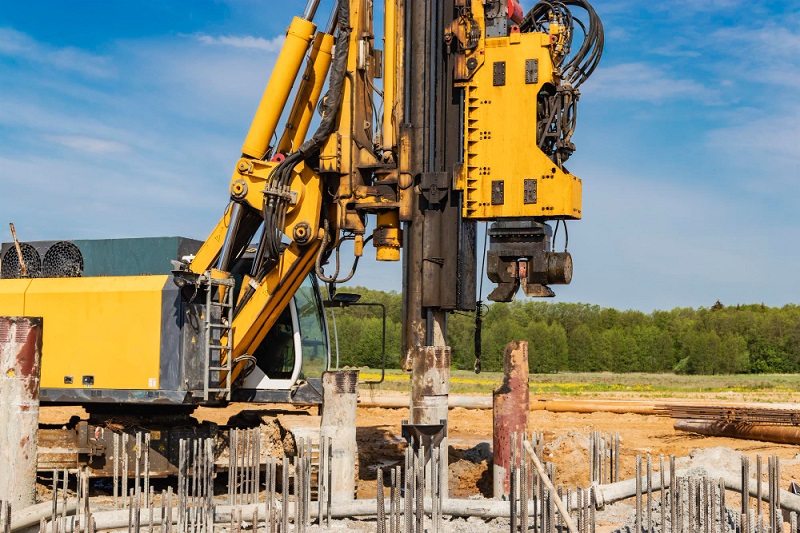 When constructing a new building, the longevity and safety of the structure hinge on its foundation. Enter steel pipe foundation piling—a stalwart support system that often goes unnoticed yet plays a critical role in fortifying the backbone of modern infrastructures. If you’re grappling with the challenge of creating a rock-solid foundation, considering the offerings of credible pipe pile suppliers is a decision you won’t regret.
When constructing a new building, the longevity and safety of the structure hinge on its foundation. Enter steel pipe foundation piling—a stalwart support system that often goes unnoticed yet plays a critical role in fortifying the backbone of modern infrastructures. If you’re grappling with the challenge of creating a rock-solid foundation, considering the offerings of credible pipe pile suppliers is a decision you won’t regret.
Steel Pipe Piles for Your Foundation—Why It’s A Must
Steel pipe foundation piling is not a universal requirement for every construction project. Its necessity arises when dealing with poor soil conditions, like loose sand, silty clay or expansive clay that can’t bear the structure’s load on its own. By driving steel pipes deep into the earth, they transfer the load of the building to the more stable soil layers, giving you peace of mind about the structural integrity of your building. So, if you’re faced with complex geological conditions, turn to reputable pipe pile suppliers to ensure a safe and lasting solution.
The Battle of Bearing—End vs. Friction Piles
In the arena of steel pipe foundation piling, you’ll find two main players: end-bearing piles and friction piles. End-bearing piles shine when their role is to channel the building’s weight directly onto a stable, supportive layer of soil. They essentially function as robust pillars, forging a steadfast connection between the earth and the structure above.
Conversely, friction piles rely on the gripping power generated between the pile and the soil to support the structure’s weight. These are the go-to options for soil types that may not have a strong bearing stratum but offer sufficient adhesive qualities to grasp onto the piles. The optimal choice between these two types will ultimately depend on carefully evaluating your soil conditions and the specific needs of your construction project.
Step-by-Step Guide to Installing Steel Pipe Piles
- Consultation with Engineers: The first step involves a thorough consultation with structural and geotechnical engineers to determine the ideal type of steel pipe pile for your project based on soil conditions and building requirements.
- Selection of Pile Type: Based on the consultations and soil analysis, decide whether to use end-bearing piles or friction piles. The choice significantly impacts the installation process.
- Machinery Selection: Depending on the project’s scale and complexity, choose the appropriate heavy machinery for driving the piles. Hydraulic hammers and diesel hammers are commonly used for this purpose.
- Safety Measures: Prior to installation, ensure all safety protocols are in place. This includes marking the installation site, protective gear for workers and securing the perimeter.
- Initial Site Preparation: Clear the area where the steel pipes will be driven into the ground. Remove any obstacles or debris that could interfere with the machinery or the installation process.
- Pre-Drilling (If Required): In some cases, especially when dealing with resistant soil conditions, a pre-drilling process is executed to ease the installation of the steel pipe piles.
- Pile Driving: Utilize the selected heavy machinery to drive the steel pipes into the ground. This should be done with precise control and monitoring to ensure the pipes go as deep as required and in the correct alignment.
- Adherence to Project Specifications: Continuously check that the installation aligns with the project’s specifications, including depth, alignment and distribution of load. Use laser guides or GPS-based systems for higher accuracy.
- Quality Checks: Perform immediate quality checks to ensure the piles are correctly installed. This often involves sonic testing or similar methods to confirm the pile’s integrity.
- Final Inspection: Once all the piles are installed, a final review is essential to make sure that everything meets the project’s structural and safety requirements.
Why Turn to Pipe Pile Suppliers for Steel Pipe Piles?
One question that looms large for many is, why opt for steel pipe piles? The answer is straightforward—these piles offer unmatched durability and load-bearing capabilities. Unlike other piling materials, steel does not deteriorate rapidly, which means your structure stands robust for a longer period. Moreover, steel pipes are easy to install and can be driven deeper for extra stability, offering a broad spectrum of lengths and diameters to match your project’s needs. When it comes to sourcing these benefits, partnering with professional pipe pile suppliers can make a significant difference in the quality and effectiveness of your foundation.
Ready to Build a Foundation That Lasts?
Don’t leave your next construction project to chance. For top-tier steel pipe foundation piling, trust International Pipe—the reliable pipe pile supplier for industry professionals. Secure your future with a foundation that’s not just robust but is a testament to quality and endurance.
